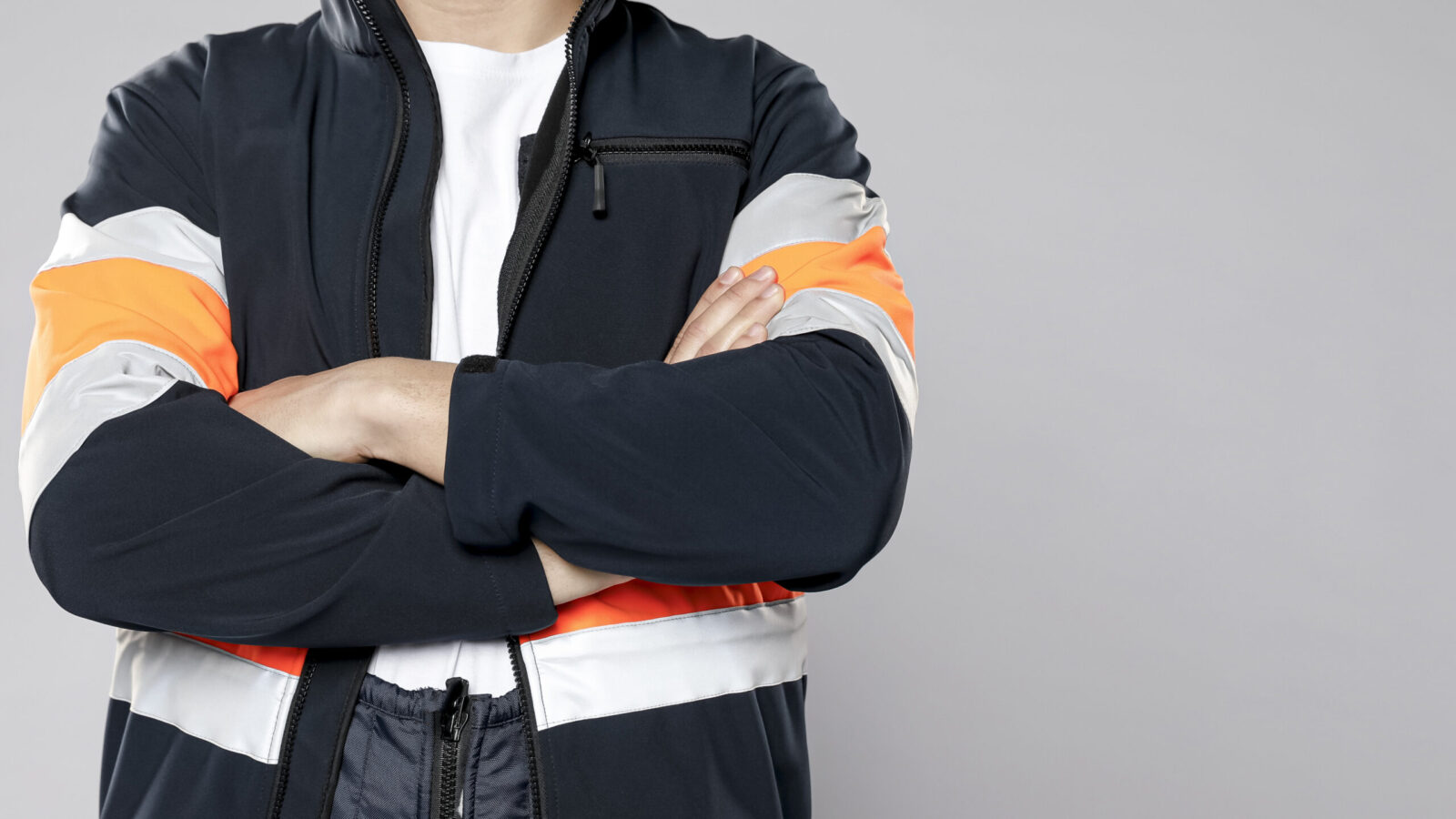
Essential PPE in the Food Industry: What You Need to Know
Overwhelmed by PPE options for food safety? Master your PPE selection for food workers safety with these practical tips.

Get 20€ off on your first order!
Choosing the right winter work jacket is crucial for staying warm, comfortable, and safe while working in cold conditions. With so many options available, it can feel overwhelming to make the right choice.
This guide promises to provide you with all the knowledge you need to confidently select a jacket that meets your specific needs—from insulation and material to fit and industry-specific features.
As experts in winter workwear, we’ll ensure you’re equipped for the season ahead. And as a bonus, we’ll guide you to related solutions like gloves, safety shoes, and more to tackle every winter work challenge you face next.
Explore our full range of winter work jackets to find the perfect match for your needs.

The type of insulation significantly impacts warmth and comfort. Most winter work jackets feature either down insulation or synthetic insulation:
For more details, explore our guide on Insulation Types.
The outer material of your jacket should be both durable and weather-resistant. Common options include:
For harsh winter environments, consider jackets with enhanced waterproof ratings and windproof membranes, such as those meeting the EN 342:2017 Winter Workwear Standards.
This certification evaluates the jacket’s performance in cold conditions, ensuring it meets European standards for air permeability and thermal resistance.
For example, Level 3 ratings under EN 342 signify maximum protection in sub-zero temperatures, giving you confidence in its ability to meet industry demands.
These standards ensure both functionality and safety, helping you choose a jacket tailored to your specific needs. These materials ensure longevity and optimal performance across various demanding settings. Learn more about EN Standards from this guide in Wikipedia.
A properly fitted jacket ensures mobility and retains warmth. When trying on jackets:
Refer to our Layering Guide to optimize your jacket’s performance.
Different industries have unique requirements:
Learn more about Choosing the Right Jacket for Construction.
To stay fully equipped for cold weather, consider these complementary products:
Here are some trusted brands offering high-quality winter work jackets:
| Size (EU) | Chest (cm) | Waist (cm) | Length (cm) |
| S | 88-94 | 76-82 | 164-170 |
| M | 96-102 | 84-90 | 170-176 |
| L | 104-110 | 92-98 | 176-182 |
| XL | 112-118 | 100-106 | 182-188 |
This is a general sizing chart, please consult with your supplier for more accurate sizing information.
Winter work jackets are essential across industries such as:
We hope this guide has been instrumental in navigating the essential factors for selecting the best winter work jackets, from insulation types to industry-specific features.
Whether you need protection for construction, logistics, or manufacturing, our goal is to ensure your safety and comfort in every cold-weather situation. Explore the full range of winter work jackets from trusted brands like Dimex, Helly Hansen, and Portwest to find the perfect fit for your needs.
Have questions or need advice? Our team is always here to assist you in making confident and informed choices.
And when you’re ready to gear up further, don’t forget to check out complementary products like winter work gloves and winter safety shoes to tackle every winter work challenge ahead.
– The Droppe Team
To determine if a jacket is waterproof, check for specific waterproof ratings or certifications like Gore-Tex or similar technologies. Jackets labeled with a water resistance or waterproof standard, such as those with EN 342:2017 certification, ensure that the jacket can withstand wet conditions. Also, look for features like sealed seams and water-resistant zippers.
Yes, many winter work jackets are designed for extreme cold. Look for jackets with high-performance insulation, such as Thinsulate or down, and those rated with EN 342:2017 for maximum thermal resistance. Jackets with additional features like windproof membranes and weatherproof materials will offer enhanced protection in sub-zero temperatures.
Work jackets are specifically designed for functionality in demanding work environments, often featuring reinforced stitching, high visibility, flame resistance, and other industry-specific features. Winter coats for everyday use, on the other hand, are generally focused more on fashion and comfort and may not have the durability or safety features needed for harsh work environments.
Follow the manufacturer’s care instructions, but in general, it is important to wash your jacket using mild detergents and avoid fabric softeners, which can reduce water resistance. If the jacket is waterproof, use a special re-waterproofing treatment after several washes. Always air-dry your jacket to prevent damaging insulation materials.
Yes, many brands offer winter work jackets designed specifically for women. These jackets are tailored to fit the female form, with adjustments to sizes, waistbands, and sleeve lengths. Ensure that the jacket meets the specific requirements of your work environment while providing the right fit and comfort.
Thank you! You've signed up for our newsletter.



















Overwhelmed by PPE options for food safety? Master your PPE selection for food workers safety with these practical tips.

Struggling to maintain clear vision in demanding environments? This guide is here to help. By the end, you’ll know exactly...

Electricians across Europe face unique challenges that require reliable safety glasses to ensure both protection and efficiency. Whether safeguarding against...

Overwhelmed by PPE options for food safety? Master your PPE selection for food workers safety with these practical tips.

Struggling to maintain clear vision in demanding environments? This guide is here to help. By the end, you’ll know exactly...

Electricians across Europe face unique challenges that require reliable safety glasses to ensure both protection and efficiency. Whether safeguarding against...
Get 10€ off on your first order!
Save 30% by buying directly from brands, and get an extra 10€ off orders over €100
Save 30% by buying directly form brands, and get an extra 10€ off orders over €100